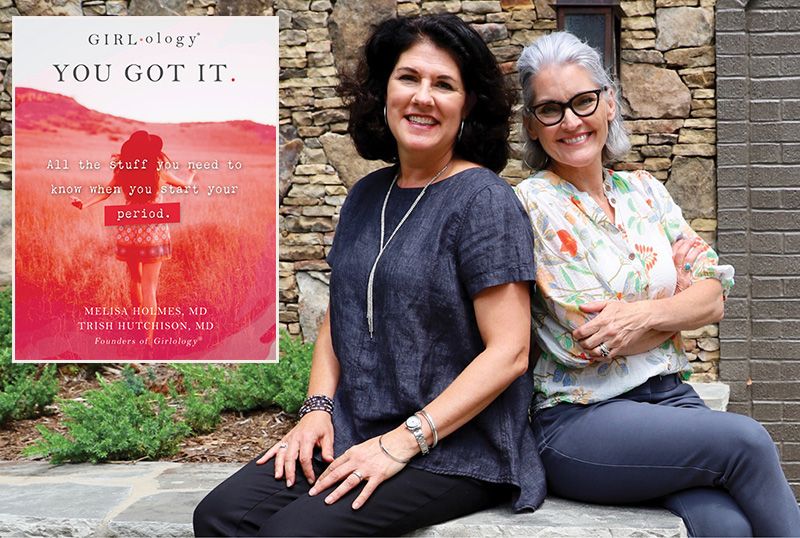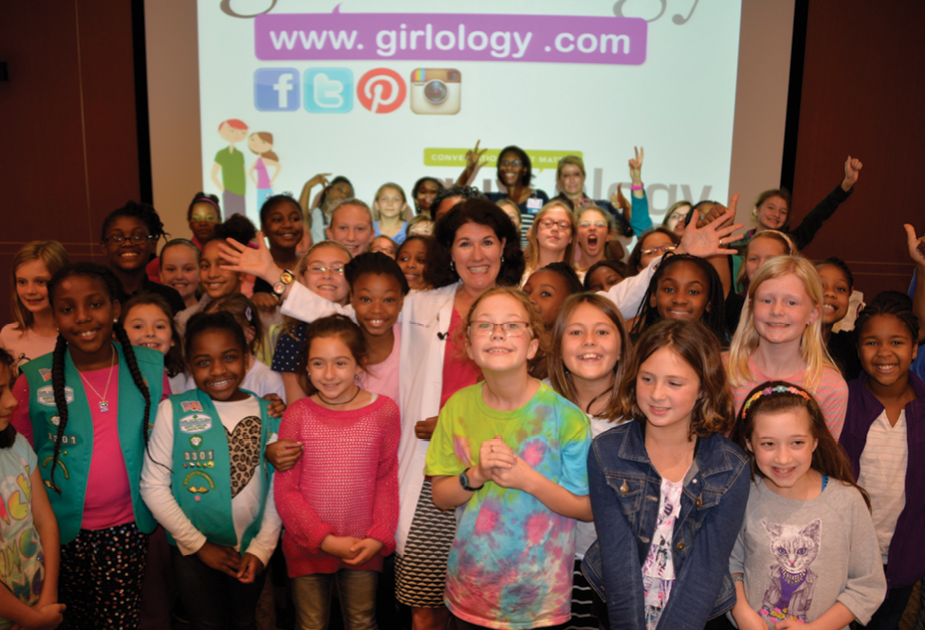The Charleston-based program helps tweens and teens build confidence

Drs. Trish Hutchison and Melisa Holmes founded Girlology to educate teens about health during the transformative time; (inset) The cofounders have written four guides dealing with topics such as menstrual health.
When it comes to teenage girls, what parent hasn’t lamented the lack of a manual? Even mothers (who can proudly pronounce, “been there, done that, rocked the T-shirt,”) often squirm over striking up conversations with their daughters about puberty and sex. “In the US, especially, there seems to exist this sense of shame and embarrassment when we talk about the changes in our bodies—if we even talk about them at all,” says local pediatrician Dr. Trish Hutchison. “But kids’ health education is too important for parents not to take ownership.”
Cue Girlology, a medically based educational program designed to hold the hands of families as they navigate the complexities of puberty and adolescence. “As a physician and a mom, I’m concerned about where girls are going for their health knowledge; Dr. Google can lead to all sorts of misinformation,” says Hutchison, who cofounded Girlology in 2003 with Dr. Melisa Holmes, an ob-gyn specializing in adolescent gynecology. “We wanted to help fill the gap in young women’s health education.”
With the motto “Fear less. Know more,” Girlology’s intensive group workshops, on-demand puberty education, and an app bring mother-daughter pairs together for open and honest talks about puberty and reproduction. “Participants are so nervous when they step into our programs, but by the end, they’re flinging bras and slinging tampons overhead,” laughs the unflappable doc, noting that 94 percent of teens and 98 percent of parents say completing the program made them feel more at ease talking about health concerns. “If you can talk with your kids about sex, you can talk about anything,” stresses Hutchison, pointing at research that proves kids who’ve discussed these topics with their parents are more apt to protect themselves from risky behaviors.

Dr. Hutchison celebrates with girls participating in a Something New About You event.
To expand access to this vital content, the organization partners with pediatric practices across the country, training health-care workers in how to distribute the information to tweens and teens nationwide. The organization also operates a nonprofit branch, Girlology Foundation, that offers free workshops at Title 1 schools and scholarships for girls living in underserved communities to attend the paid programs. In all, more than 50,000 girls ages seven to 15 have taken part.
Girlologists know the teen years mark big changes, however, and after 17 years of primarily in-person sessions, Hutchison and Holmes have shifted to a growing digital presence (a process sped along by COVID-19). Now, parents and daughters can join Girlology classes from the comfort of the couch, digesting lessons at their own pace with 10-minute on-demand videos. Both the website and app offer a free video catalog of follow-up tips covering age-appropriate topics on everything from menstrual health to mental health. Parents can reinforce this knowledge with one of four straight-talk guides published by the cofounders. With the help of a male pediatrician, they also created a Guyology program for the boys dubbed “Just the Facts,” but their focus remains primarily on the girls.
The Girlology Foundation is also maturing, with a new venture kicking off this year. “One in five American girls misses school because she’s worried about not having menstrual hygiene products,” says Hutchison, who has encountered several charities that supply free period essentials but none that give out the essential know-how. To address the knowledge gap that accompanies period poverty, the Girlology Foundation has teamed up with the local chapter of Homeless Period Project and national organizations like Girls, Inc. and Tampax to develop and deliver a period curriculum for community-based PEP Rallies (Period Education Project). “Understanding what happens during puberty improves self-worth and gives girls the necessary information to take care of their bodies,” she says. And girls who come of age with confidence rather than confusion grow into strong, self-assured women.